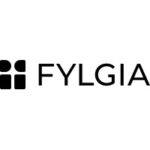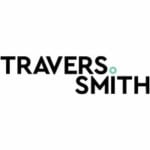-
What kinds of incentive plan are most commonly offered and to whom?
- Cash-based performance bonus schemes: employee’s right to a variable remuneration paid in cash based on employee’s personal, business unit’s or organisation’s performance. Can be used in any kind of companies where the employees’ performance can be measured and rewarded.
- Option and share-based incentive schemes: allow employees (including executives and board members) to purchase or receive employer company’s shares. Used especially in startups with high growth targets and desire to engage personnel as it may be financially easier to reward and engage them with share-based incentives instead of cash payments.
- Employee fund: owned and managed by employees for the purpose of managing employees’ profit-related bonuses and other assets. Typically used in larger companies where employees’ remuneration is partly paid in performance-related bonuses and employees are willing to invest their assets in a fund in a tax-effective way.
-
What kinds of share option plan can be offered?
- Share option right: employee is entitled to acquire a certain number of employer company’s shares typically at a price below fair market value after a predetermined period if predetermined targets have been met. The performance can be measured for example based on the key figures of the financial statements. The holder of the option right is entitled to decide whether to use the right for share subscription (the option right may also be sold).
- Restricted stock (RS): employee receives shares of employer company with certain restrictions, such as a prohibition on selling for a specified period. Shareholder rights, including voting rights at general meetings and dividend rights, are generally given to the employee at the time of grant followed by the restriction period with a forfeiture clause. The forfeiture clause may relate to, for example, the continuity of the employment. After the restriction period, the shares are fully vested.
- Restricted share unit (RSU): employee is granted a conditional promise of receiving a certain amount of shares of the employer company or equivalent amount of cash after an earning period. This conditional promise is related to the continuity of employment and possible other conditions. The employee receives the shares and the shareholder rights after only at the time of vesting.
- Performance share plan (PSP): employee is granted a conditional promise of receiving a certain amount of shares of the employer company or equivalent amount of cash after an earning period, based on the achievement of specific profit and/or performance targets. Compared to RS and RSU awards the emphasis is on individual and/or company performance.
-
What kinds of share acquisition/share purchase plan can be offered?
- Employee share issue: employee is entitled to subscribe for company shares based on an employment relationship.
- Employee share savings plan (ESSP): employee saves certain amount of its monthly salary to invest the amount by acquiring employer company’s shares. Based on the number of shares acquired the company may also offer a certain number of additional shares (so called matching shares). These shares are typically offered free of charge after a certain holding period provided that the employee has not left the company and still holds the shares. For example, employee receives one share for free for every two shares acquired.
-
What other forms of long-term incentives (including cash plans) can be offered?
- Synthetic option (Stock/Share Appreciation Right, SAR, Phantom Option): employee is entitled to receive a cash amount that is determined based on the employer company’s share price. In the arrangement the employee is granted an option right, but the right does not entitle to share subscription but instead to a cash payment.
- Convertible bond: a bond loan where the lender is entitled to subscribe for the company’s shares to convert its receivable, partially or entirely, into shares. Convertible bonds are thus a combination of debt, option right and set-off.
-
Are there any limits on who can participate in an incentive plan and the extent to which they can participate?
There are no limits on who can participate in an incentive plan or the extent to which they can participate. However, the employer may decide the participants in an incentive plan i.e. offered to executives, key personnel or senior management only, and the extent to which they can participate as long as this is not done on discriminatory grounds. Further, obtaining tax benefits may require that the incentive plan is offered to at least the majority of the personnel. Please see more information on the tax aspects in question 9.
-
Can awards be made subject to performance criteria, vesting schedules and forfeiture?
Awards can be subject to performance criteria, vesting schedules and forfeiture. These aspects may have an impact on the tax and social security treatment of the award.
-
Can awards be made subject to post-vesting and/or post-employment holding periods. If so, how prevalent are these provisions both generally and by reference to specific sectors?
Awards may be subject to post-vesting and/or post-employment retention periods. These provisions are particularly common in regulated industries such as financial services. In other sectors, the use of post-vesting or post-employment holding periods vary. Large publicly listed companies are more likely to implement such provisions as part of their management retention plan than smaller companies.
-
How prevalent malus and clawback provisions are and both generally and by reference to specific sectors?
This has not been prevalent. However, malus and clawback provisions are becoming increasingly common in Finland, especially in sectors where performance-based compensation and risk management are crucial. The most common use of malus and clawback provisions is within the financial services industry.
-
What are the tax and social security consequences for participants in an incentive plan including: (i) on grant; (ii) on vesting; (iii) on exercise; (iv) on the acquisition, holding and/or disposal of any underlying shares or securities; and (v) in connection with any loans offered to participants (either by the company operating the incentive plan, the employer of the participant (if different) or a third party) as part of the incentive plan.
(i) on grant;
As a main rule, there are no income tax or social security consequences on grant of share options or share-based incentives.
Traditional performance bonuses paid in cash are fully taxable earned income for the recipient, from which all employee and employer social security contributions are payable. In 2025, the employee’s share of the social security costs is 9.64 % or 11.14 % (depending on the employee’s age) and the employer’s share of social security contributions is around 21.68 %.
Employee funds offer the possibility to transfer cash bonuses, or a portion thereof, to the employee fund, thereby deferring the taxation of these bonus amounts until the funds are later withdrawn from the employee fund. The incentive for transferring bonuses to the fund is that, upon later withdrawal, only 80 % of the amount is taxable earned income, and 20 % is tax-exempt income. Additionally, no other payroll-related costs are paid on the withdrawals, except for the employee’s increased medical contribution of the sickness insurance premium (1.45 % in 2025).
(ii) on vesting;
Options: No income tax or social security consequences upon vesting for share options.
Other share awards: Typically, in share award plans, such as Performance Share Plans and Restricted Stock Units, taxation occurs at vesting. The fair market value of the shares received deducted with possible subscription price is considered as taxable earned income. The amount taxable is subject to all social security contributions.
However, if the following criteria are met, only the employee’s increased medical premium of the sickness insurance premium (1.45 % in 2025) is payable, and no other social security contributions are due:
1) the underlying shares are listed on a regulated stock exchange;
2) the award has a minimum of one-year vesting period;
3) the final value of the incentive depends on the share price development; and,
4) the award plan is a share plan and the intention has been to provide the award in shares.(iii) on exercise;
Taxable earned income arises when employee exercises the share option right:
- By subscribing for shares with an option. The taxable earned income is calculated by deducting the possible subscription price and the possible option acquisition cost from the fair market value of the shares at the time of exercise; or
- By transferring the option to a person other than their inner circle with a remuneration. The taxable earned income is calculated by deducting the possible option acquisition price from the option sales price.
As a main rule, taxable option is only subject to the employee’s increased medical contribution of the sickness insurance premium (1.45 % in 2025). However, if the option is considered as “underpriced” (subscription price is lower than 50% of the fair market value of the shares at grant) and the vesting period does not exceed one year, all employee and employer social security contributions are due.
(iv) on the acquisition, holding and/or disposal of any underlying shares or securities;
The acquisition of shares at a price lower than the fair market value of the shares is generally considered a taxable event for the employee, where the full discount is considered as taxable earned income and is subject to all social security contributions. However, Section 66.1 of the Finnish Income Tax Act includes specific provisions regarding employee share issue. In an employee share issue aimed at a company’s own employees, only a discount exceeding 10 % of the fair market value of the shares is considered taxable earned income. When such an employee share issue is available to the majority of the personnel, any taxable benefit that may arise from the share issue is not subject to social security contributions, except for the employee’s increased medical contribution of the sickness insurance premium (1.45 % in 2025).
Since 2021, Section 66a of the Finnish Income tax Act stipulates a personnel share issue in unlisted companies, whereby employees can subscribe to shares at an adjusted mathematical value without creating a taxable benefit. The adjusted mathematical value can be significantly lower than the fair market value of the shares. One of the conditions for the applicability of this tax treatment is that the share offering is made available to the majority of personnel.
Transfer tax is payable when obtaining treasury shares of a company. The tax rate is 1.5 % (2025). As a main rule, the transfer tax is payable on the combination of the purchase price of the shares and the taxable value received through a share award.
Holding of shares is not considered a taxable event in Finland i.e. there are no wealth taxes payable on shareholding. However, dividends received from shares are considered as taxable capital income.
Disposal of the shares is considered as a taxable event, where gain received is taxed as capital income and loss can be deducted from capital gains in the same tax year, and any unused losses can be carried forward for 5 years to offset future gains.
(v) in connection with any loans offered to participants (either by the company operating the incentive plan, the employer of the participant (if different) or a third party) as part of the incentive plan.
A loan granted based on an employment relationship may result in a taxable interest benefit for the employee. If the interest rate of the employee loan is linked to a reference rate commonly used in the market, a taxable interest benefit arises to the extent that the annual interest charged on the loan is lower than the reference rate. If the interest rate of the employee loan is not linked to a reference rate, a taxable interest benefit arises to the extent that the annual interest charged on the loan is lower than the 12-month Euribor rate on the first day of the year. The interest benefit is considered taxable salary income for the employee. However, the interest benefit from an employee loan is subject to social security contributions.
-
What are the tax and social security consequences for companies operating an incentive plan? (i) on grant; (ii) on vesting; (iii) on exercise; (iv) on the acquisition, holding and/or disposal of any underlying shares or securities; (v) in connection with any loans offered to participants (either by the company operating the incentive plan, the employer of the participant (if different) or a third party) as part of the incentive plan.
(i) on grant;
As a main rule, there are no income tax or social security consequences on grant.
(ii) on vesting;
Options: no income tax or social security consequences on vesting for share option rights.
Other share awards: typically, in share award plans, such as Performance Share Plans and Restricted Stock Units, taxation occurs on vesting. The amount taxable may be subject to all social security contributions. The employer company is responsible for withholding tax and social security contributions payable by the company and the employee and reporting employee’s taxable benefit in the Incomes Register. In 2025, the employer’s share of social security contributions will be around 21.68 %. Please see more information on the taxation and social security contributions in question 9.
(iii) on exercise;
Taxable earned income arises when the employee exercises the option by subscribing for shares with an option or by transferring the option to a person other than their inner circle with a remuneration. The employer company is responsible for withholding tax and social security contributions payable by the company and the employee and reporting employee’s taxable benefit to the Incomes Register. In 2025, the employer’s share of social security contributions will be around 21.68 %. Please see more information on the taxation and social security contributions in question 9.
(iv) on the acquisition, holding and/or disposal of any underlying shares or securities; and
Acquisition of shares at a price lower than the fair market value of the shares is generally considered a taxable event for the employee where the full discount is considered as taxable earned income and is subject to all social security contributions. The employer company is responsible for withholding tax and social security contributions payable by the company and the employee and reporting employee’s taxable benefit in the Incomes Register. In 2025, the employer’s share of social security contributions will be around 21.68 %. Please see more information on the taxation and social security contributions in question 9.
(v) in connection with any loans offered to participants (either by the company operating the incentive plan, the employer of the participant (if different) or a third party) as part of the incentive plan.
A loan granted based on an employment relationship may result in a taxable interest benefit for the employee. The employer company is responsible for withholding tax and reporting employee’s taxable benefit to the Incomes Register. Please see more information on the taxation in question 9.
-
What are the reporting/notification/filing requirements applicable to an incentive plan?
Decisions on the granting of option rights and the terms of the option rights are required to be registered with the Finnish Trade Register. New shares issued shall also be registered with the Finnish Trade Register.
The employer must submit reports to the Finnish Incomes Register to give details on salaries, fringe benefits including benefits received from equity-based incentive plans and other taxable payments. Even though the employer company of the employee would change, the benefit is considered to have been received from the company where the employee was employed at the time of receiving the share options or share awards (i.e. the employer at grant). Therefore, this company retains the employer obligations related to the employee share options or share awards, regardless of the change in employer. This means that the company is responsible for withholding of taxes, paying the employer’s sickness insurance premium, if applicable, and reporting the benefit to the Incomes Register.
Employer is also responsible for reporting the possible taxable benefit received through employee share issue to the Incomes Register. With regards to employee share issue in accordance with Article 66a of the Finnish Income Tax Act, the employer is also obliged to submit a separate annual notification with the Finnish Tax Administration to provide further details on the share issue.
-
Do participants in incentive plans have a right to compensation for loss of their awards when their employment terminates? Does the reason for the termination matter?
In case the award is paid in cash, there is usually no right to compensation. The terms of the incentive plan usually describe how awards are accumulated and under what conditions they are paid.
If the award consists of options or shares, compensation for the loss of these awards generally depends on the grounds for the termination of employment and the conditions described in the schemes or terms, which are unilaterally determined by the company or agreed in the shareholder agreement. The terms governing the employment and termination of employment for a shareholder or option holder are typically outlined through “Good leaver” and “Bad leaver” provisions.
In general, Bad Leaver leaves the employer on their own initiative, either at any time or within a certain period or at the employer’s initiative due to personal reasons under the Employment Contracts Act. Good Leaver applies to all the other situations, including dismissal for financial and production-related grounds.
- Option-based incentive scheme:
- Bad Leaver: all unsubscribed options are usually forfeited, and depending on the scheme, shares subscribed for under options may also have to be returned or redeemed.
- Good Leaver: on a case-by-case basis, it may be possible to subscribe vested options in shares. Or shares subscribed for under options may be redeemed, but often at a better price than in a Bad Leaver situation.
- Share-based incentive scheme:
- Bad Leaver: shares are mostly redeemed, and at a lower price than in a Good Leaver situation.
- Good Leaver: shares may be redeemed, but often at a better price than in a Bad Leaver situation.
- Option-based incentive scheme:
-
Do any data protection requirements apply to the operation of an incentive plan?
Starting and operating an incentive plan may require collecting and processing employees’ personal data, which is covered by the General Data Protection Regulation (GDPR) and the implementing Finnish Data Protection Act. In addition, the Finnish Act on the Protection of Privacy in Working Life covers the necessity requirement and general preconditions for collecting personal data that concerns employees and the employer’s duty to provide information about the data collected.
-
Are there any corporate governance guidelines that apply to the operation of incentive plans?
As a general principle, it is regarded a good corporate governance that resolutions regarding remuneration, including grants based on incentive plans, are approved applying the grandfather principle, i.e., by the manager of the immediate manager of the employee.
Companies listed on Nasdaq Helsinki Ltd and companies traded in the Nasdaq First North Premier Growth Market segment must comply with the Finnish Corporate Governance Code (the “CG Code”). In addition, also many other Nasdaq First North listed companies apply the CG Code on a voluntary basis. The CG Code includes recommendations on decision-making relating to remuneration, as well as recommendations on remuneration and shareholdings of the board of directors.
The Code provides that the general meeting of shareholders shall decide both on the remuneration for board and committee work and the criteria for determining the remuneration. The board of directors decides on the remuneration of the managing director within the limits of the remuneration policy presented to the general meeting of shareholders. The company specifies the decision-making procedure for the remuneration of the rest of the management team.
The Code provides that the remuneration for board and board committee work may be paid either fully or in part in the form of company shares. Remuneration of a non-executive member of the board of directors shall be arranged separately from the share-based remuneration scheme applicable to the company’s managing director, management team or personnel.
-
Are there any prospectus or securities law requirements that apply to the operation of incentive plans?
Yes, particularly for equity-based plans.
Under Finnish law and applicable EU regulations, the operation of incentive plans, especially those involving securities (e.g., share-based or similar equity-based instruments), must comply with several securities law requirements stipulated by the EU Market Abuse Regulation (MAR), the Finnish Securities Markets Act, the EU Shareholder Rights Directive (SRD II), as well as various disclosure and corporate governance requirements set forth by the Finnish Financial Supervisory Authority, Nasdaq Helsinki and First North Growth Market, as well as the Finnish Securities Markets’ Association.
On the other hand, in practice, most equity-based incentive plans do not require a prospectus, but in principle they are subject to the EU Prospectus regulation and equivalent local requirements under the Finnish Securities Markets Act.
It is important for publicly listed companies to ensure compliance with the regulatory framework, which can be complex.
Key requirements to note include:
- Insider Trading: Persons with access to sensitive, non-public information are prohibited from trading based on that information or disclosing such information. This necessitates certain measures when designing, operating and participating in equity-based incentive plans.
- Disclosure: Publicly listed companies are required to disclose various matters related to equity-based incentive plans in a timely and transparent manner to the markets, which necessitates certain measures when designing, deciding on and operating equity-based incentive plans. Corporate governance rules also require companies to maintain certain current information on their remuneration plans on their investor website.
- Reporting: The SRD II outlines rules regarding the disclosure of executive remuneration and shareholder engagement. For most publicly listed companies (exemptions apply), this includes adhering to a remuneration policy approved by the general meeting of shareholders and reporting on the implementation of incentive plans, including share-based compensation, in the annual report.
Additionally, it is important to note that incentive plans involving securities often necessitate certain registrations with and/or applications to authorities during the plan. In some instances, the use of external parties, such as an issuer agent, may also be required.
-
Do any specialist regulatory regimes apply to incentive plans?
Companies operating incentive plans in Finland need to take several legal considerations into account to ensure compliance with e.g. (i) tax legislation as mentioned in Questions 10 and 11; (ii) company law, listing rules and market abuse legislation and (iii) employment legislation.
Additionally, there is special legislation (such as the Act on Investment Services) concerning the financial sector to regulate incentive schemes and remuneration in general. Such legislation is largely based on the EU law.
-
Are there any exchange control restrictions that affect the operation of incentive plans?
In Finland, there are no exchange control restrictions relating to the operation of incentive plans.
As a member of the European Economic Area (EEA), Finland follows the principle of free movement of capital, meaning that companies can generally implement share-based incentive plans without restrictions related to currency exchange or cross-border fund transfers.
-
What is the formal process for granting awards under an incentive plan?
In an equity-based plan, the issue of shares and option-rights require approval by the general meeting of shareholders. In practice, the resolution to issue shares or option rights is usually taken by the board of directors based on an authorization granted by the general meeting of shareholders.
The awards under a cash-based incentive plans can in general be approved by the board of directors, without shareholder approval, or by management, based on the authorization of the board of directors.
A resolution to issue option rights shall be registered with the Finnish Trade Register. Also, a resolution to issue new shares as well as the new shares shall be registered with the Finnish Trade Register.
-
Can an overseas corporation operate an incentive plan?
Yes.
-
Can an overseas employee participate in an incentive plan?
Yes. However, it should be noted that the beneficial tax treatment relating to employee share issue in accordance with Section 66a of the Finnish Tax Act applies only to those employees who have direct employment relationship with the company who issues the shares and whose shares are being issued.
Furthermore, overseas individuals may in some cases encounter other unique issues with their share-based incentives during the scheme.
-
How are share options or awards held by an internationally mobile employee taxed?
In general, the benefits received from share options and awards are subject to tax in Finland to the extent the benefit has accrued during the period when the employee has been considered a tax resident in Finland for Finnish internal tax purposes. However, if the employee has worked in another country during the vesting or earning period of the awards, the benefit is allocated to taxable and non-taxable portions in Finland based on the time apportionment from grant to vest. This allocation applies if the Finnish internal so-called six-month rule applies, or if the provisions of an applicable double tax treaty prevent Finland from taxing the benefit. Furthermore, specific additional requirements must be considered for the six-month rule to apply to the benefit received through share options and other share awards.
Individuals considered as non-resident for Finnish internal tax purposes are subject to taxation in Finland solely on their Finnish-source income. Share options and awards are deemed Finnish-source income if the non-resident employee has worked solely or primarily for a Finnish employer in Finland who offers the share option or award. The benefit is apportioned into taxable and non-taxable portions based on the time allocation. A Finnish employer is considered as, among others, a Finnish company or a permanent establishment of a foreign entity located in Finland.
-
How are cash-based incentives held by an internationally mobile employee taxed?
Cash-based incentives follow essentially the same tax rules as outlined in question 21.
-
What trends in incentive plan design have you observed over the last 12 months?
Companies are increasingly focusing on long-term incentives to align employee interests with the company’s performance and sustainability. There is a shift from short-term bonuses to equity-based long-term incentives (LTIs), such as share options or performance shares, which vest over several years. ESG metrics are being incorporated into incentive plans, with Finnish companies aligning rewards with sustainable growth, climate goals, diversity, inclusion, and ethical governance. This trend goes beyond financial performance to meet broader corporate responsibility objectives. Many companies, especially in the technology and startup sectors, are offering employee share ownership plans (ESOPs) and similar equity-based benefits to attract and retain talent. Additionally, there is a tax-efficient push for these schemes, particularly for unlisted companies.
-
What are the current developments and proposals for reform that will affect the operation of incentive plans over the next 12 months?
Currently, no proposed reforms are expected to impact incentive plans in the next 12 months. However, the Supreme Administrative Court of Finland recently ruled (ruling SAC:2025:7) that cancelling a share option plan and replacing it with an employee share issuance under Section 66a of the Income Tax Act does not constitute the exercise or transfer of share options nor tax avoidance. As a result, the employees did not incur any taxable benefit. This decision may lead to greater flexibility in structuring tax-efficient incentive plans and let employees to choose between share option plan and employee share issue.
Finland: Employee Incentives
This country-specific Q&A provides an overview of Employee Incentives laws and regulations applicable in Finland.
-
What kinds of incentive plan are most commonly offered and to whom?
-
What kinds of share option plan can be offered?
-
What kinds of share acquisition/share purchase plan can be offered?
-
What other forms of long-term incentives (including cash plans) can be offered?
-
Are there any limits on who can participate in an incentive plan and the extent to which they can participate?
-
Can awards be made subject to performance criteria, vesting schedules and forfeiture?
-
Can awards be made subject to post-vesting and/or post-employment holding periods. If so, how prevalent are these provisions both generally and by reference to specific sectors?
-
How prevalent malus and clawback provisions are and both generally and by reference to specific sectors?
-
What are the tax and social security consequences for participants in an incentive plan including: (i) on grant; (ii) on vesting; (iii) on exercise; (iv) on the acquisition, holding and/or disposal of any underlying shares or securities; and (v) in connection with any loans offered to participants (either by the company operating the incentive plan, the employer of the participant (if different) or a third party) as part of the incentive plan.
-
What are the tax and social security consequences for companies operating an incentive plan? (i) on grant; (ii) on vesting; (iii) on exercise; (iv) on the acquisition, holding and/or disposal of any underlying shares or securities; (v) in connection with any loans offered to participants (either by the company operating the incentive plan, the employer of the participant (if different) or a third party) as part of the incentive plan.
-
What are the reporting/notification/filing requirements applicable to an incentive plan?
-
Do participants in incentive plans have a right to compensation for loss of their awards when their employment terminates? Does the reason for the termination matter?
-
Do any data protection requirements apply to the operation of an incentive plan?
-
Are there any corporate governance guidelines that apply to the operation of incentive plans?
-
Are there any prospectus or securities law requirements that apply to the operation of incentive plans?
-
Do any specialist regulatory regimes apply to incentive plans?
-
Are there any exchange control restrictions that affect the operation of incentive plans?
-
What is the formal process for granting awards under an incentive plan?
-
Can an overseas corporation operate an incentive plan?
-
Can an overseas employee participate in an incentive plan?
-
How are share options or awards held by an internationally mobile employee taxed?
-
How are cash-based incentives held by an internationally mobile employee taxed?
-
What trends in incentive plan design have you observed over the last 12 months?
-
What are the current developments and proposals for reform that will affect the operation of incentive plans over the next 12 months?









